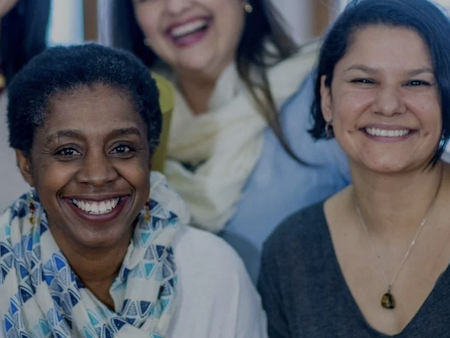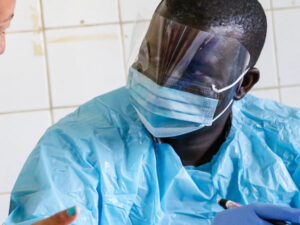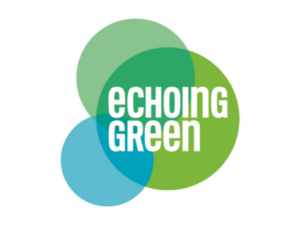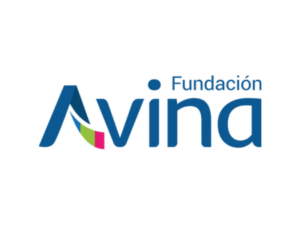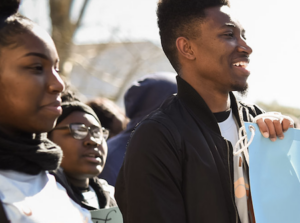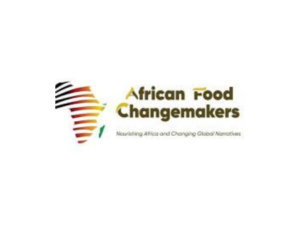MindGift.org offers free mental health resources online, including hypnosis audios and tools curated for specific needs such as managing grief, improving sleep, and processing trauma.
Mari Vasan of Mindgift.org spoke with Divya Manocha on April 12, 2023. Click here to read the full conversation with insights highlighted.
Divya Manocha: Could you please introduce yourself, talk about the problem that you’re addressing, and how you’re responding to it?
Mari Vasan: My name is Mari Vasan and my organization is MindGift.org. We are addressing the worldwide mental health crisis. According to the World Health Organization, one in four people will be affected by mental or neurological disorders, and the Lancet psychiatry study shows that there’s a massive surge in anxiety and depression worldwide. In 93% of the countries there’s an increased demand for mental health services. And 75% of people in low income countries get no treatment at all for mental health. Even in higher income countries, there are still cost prohibitions and also shortages of mental health professionals. Also, suicide rates are growing globally and suicide is actually the second leading cause of death in 15 to 29 year olds globally.
We are responding by providing a free toolkit for anyone, anywhere to feel better, to take control of their thoughts, their nervous system, and their emotions so that they can either move out of a low place or elevate the emotional state that they’re already in.
Divya Manocha: Could you please describe what’s in the free toolkit?
Mari Vasan: We use five primary tools to teach people how they can feel better: hypnosis audios, tapping, havening, meditation, and also breathing techniques. The majority of the assets that we have on the site now are hypnosis audios because hypnosis helps you to become calm, as those other techniques do. But in addition, you can rewire old patterns, you can program your mind for how you want to be, and it really allows you to almost update the apps that are in your brain. We have these old programs that get stuck from childhood or from traumas or from situations that we’ve been through. Using hypnosis can provide instant and significant change.
We address everything from anxiety and stress to decision-making during chaos, dealing with grief, dealing with illness, support for helpers that are helping during any kind of a crisis, sleeping better, dealing with trauma, feeling confident or more calm in just 10 minutes. All of these things are part of what we are offering.
Divya Manocha: Could you please describe who the people are that you are serving and how you engage with them?
Mari Vasan: We have the website and the way that we are serving people is they find the website, they go on there and then they scroll through the different topics that I mentioned such as anxiety and stress or starting new after a tragedy, whatever resonates with them that they need, they would click on that. They would then find a hypnosis audio or an app or some kind of a resource that they could listen to or watch to help them feel better. We have a trauma tapping app that is from the Peaceful Heart Network. They have helped more than a thousand people deal with trauma in 20 different countries, many of whom have survived wars. Many of the resources on the site are from top coaches, hypnotists, and trainers in the coaching and hypnosis and trauma release industry. Many well-known and respected people have contributed to this effort.
Divya Manocha: You mentioned that the people you serve are traditionally people who might be in a low place or would want to elevate their emotional level, but could you also describe the demographics of the people you serve? Do you cater to people in certain countries? Is there any profile?
Mari Vasan: Right now, the main website is in English, so it’s really for anyone who’s in an English-speaking country. We also have a Ukrainian language page that was created during the invasion of Ukraine.There are some recordings on that page in Russian as well as Ukraine. What we would like to do is add additional pages for languages in other countries.
This is still very much a startup, so we are continuing to add resources and techniques and more products. Then, as we build that out, we will look at adding additional languages. As far as who’s using it now, again, it is a startup, so it’s a small base, but I would say that the majority of our users are women and the majority of them would be, I would say, on average 25 to 60. Most are in the US currently.
Divya Manocha: What makes MindGift and its approach different from other emotional relief services?
Mari Vasan: We’re giving people an entire menu of topics, things that might be bothering them or different types of challenges that they might be going through, and they can then scroll through and use any of those. We’re also building out a section that’s about what to do if you’re facing any of these issues. We offer multiple techniques, tools, and resources that they could use.
As far as I’m aware, there’s nothing else out there that works with all of the different ways that we make ourselves feel badly. There are many ways that we basically create suffering in ourselves, and there are many ways that the brain creates this suffering or frustration or low energy. We are addressing those things, helping people get out of, say, a narrow focus or a disempowering perspective, helping them take their internal representations of things that are bothering them and change that representation.
In other words, if you are feeling very stressed about a situation and it’s really got you feeling down, you’re probably seeing it very big, bright, and close in your mind. We help them learn how to make it smaller, dimmer, farther. Change those internal representations. It’s probably not moving or they’re seeing themselves frozen in their mind. So, we give them tools and techniques to get the situation moving or get their mind moving. We show them how to open up their perspective, how to change their vision, the way that they’re seeing something instead of in a narrow focus. We use different tools that are all neuroscience-backed and science-based and proven to provide these results that they can then use in other areas of their life. They can copy and paste these methods for any different areas of their life where they’re having issues.
Divya Manocha: How do you measure your success? What evidence do you look at to see whether you’re making any progress?
Mari Vasan: We are a startup, so we are just getting to a point where we can even start measuring anything. I can tell you that we do receive some reviews on the site itself where people comment and say, “Thank you, this was helpful,” or they’ll give something five stars. We also do receive emails from people saying that it’s very helpful and asking if we can add additional topics or if they can use this in schools and things like that. But it is very new, so I don’t have a lot of data yet for that.
Divya Manocha: What insights or teachable lessons do you have from your experience with MindGift that could be used by others who are reading this interview?
Mari Vasan: I think it’s too soon to answer that last question, but what we are committed to doing is empowering the individual so that they don’t have to wait for a mental health professional to come and help them out of pain or suffering. This is all about providing the individual with tools so that they can take some kind of action and they can actually see that there is so much that they can do without any professional help. Like I said, 75% of people in low income countries get zero treatment. This is a way for them to immediately start unblocking something that’s blocked in them, such as with tapping or havening or getting their mind to see things in a different way.
What this site can do is it can help those people that are trying to help others with their efforts. So, if there are other people that are trying to run nonprofits or they have initiatives that they’re trying to get off the ground or make better to serve others, they themselves can use these techniques to help them bring their goals to reality, to help bring their organizations to the next level, to empower their employees and to empower the constituents that they’re serving.
Divya Manocha: Let’s say there was another organization that wanted to work on emotional relief the same way that MindGift does. What advice would you give to them?
Mari Vasan: The advice I would give to them is really have it grounded in science, use techniques which you know are proven. The hypnosis that we’re using, it’s all science backed. There are more than 2,000 articles on PubMed that demonstrate the efficacy of hypnosis. The other tools that we are using as well are proven for decades in the field and we know that they get results. Use what you know is proven and also give people a guideline for what sequence to go in depending on where they are. That’s something that I’m hoping to use AI for in the future, to help diagnose exactly where that person is on a spectrum of trouble, of challenges, and then also use that to personalize the recordings and the recommendations that they get.
Divya Manocha: Every social innovator learns as much from things that don’t work as they do from things that do work. Can you describe something that you tried that didn’t work and that taught you an important lesson, ideally something that others could learn from as well?
Mari Vasan: Again, this is so new, we haven’t had a ton of time to see what hasn’t worked. I think the main thing for us, our biggest challenge, is getting the word out there and letting people know that this tool exists, that this resource base exists. So taking into account how you’re going to let people know that you are there, that’s something that we are still figuring out now. I would say that is the biggest thing. I was probably over-optimistic when I started this, that awareness would just materialize quicker and people would find it so easily, and that hasn’t happened. That is a big area of focus that we’ll be paying a lot of attention to in the next year.
Divya Manocha: Aside from this, are there any other challenges or any other solutions that you’ve tried but that didn’t work out?
Mari Vasan: The biggest challenge that we have, like I said, is getting the word out there, getting people to use it. I think also how do you keep it top of mind? We’ve had lots of people who have used it and then they forget that it’s there and I might see someone months later or hear from someone, “Oh, I forgot” that this is still there and actually it’s growing. So, staying top of mind and reminding people that this is available and they can keep coming back to it.
Divya Manocha: Are you working to advance system level change in your field, and if so, how? You’ve mentioned that you’d potentially like to use AI at some point. Is there anything else that you are thinking of incorporating in your work?
Mari Vasan: The main thing for us, like I said, is empowering the individual so that they don’t feel that they have to wait for a diagnosis and giving them the resources to get themselves to a better level so that they don’t deteriorate to a dangerous level, or elevate them from where they are now without having to go and find a coach and set up sessions and have one-on-ones. You can get a lot done on your own with the right tools.
Divya Manocha: Let’s potentially shift focus to the organization side of things, so the development of MindGift. Are there any partnerships that you hope to make going forward or any kinds of policy changes that you are willing to make within your organization or that you’d want to campaign for going forward?
Mari Vasan: We’re really in our infancy, but I would love to have partnerships. I would love to work with anyone that can either add to the resource pool that we have or help us with reaching people and getting it into populations that will use it.
Divya Manocha: What do you think is most needed from other actors – other organizations, the government, other stakeholders – when it comes to advancing system level change and making mental health care more available and more top of mind overall?
Mari Vasan: I think we need more organizations like MindGift. We need more tools and databases and resources that are available to anyone, anywhere, whether it’s an app, a website, or I don’t even know what the other delivery methods would be, but it should be on the top of everyone’s mind. I’m stressed. Okay, that means I’m either focusing on something in the past or in the future. Let me bring myself back to the present. Or I need confidence for something in this area that I need to go and do. Okay, let me use a copy and paste method and reach back into a time when I was confident and use those sensations that I felt in my body and use those feelings in this area. These should be things that people learn to do from a young age and can use anytime, anywhere.
Divya Manocha: You’ve mentioned that you’re starting out and you have quite a few plans for the future, but just curious to know how you see your work evolving over the next, say, five years.
Mari Vasan: I wish I had that crystal ball. I am on a mission to empower people to take their emotional well-being within their control, take control of their brain, take control of their mental well-being, and make this available to as many people as possible so that it just becomes something that almost anyone anywhere knows how to do. That’s really what I want to happen with this. I don’t know how it’s going to happen or with whom or what partnerships we need, but I’m open to all of it. I want to share all of these resources that I’ve had the pleasure and blessing of learning and being exposed to over the past decade. I feel like everyone needs them.
Divya Manocha: Is there anything we haven’t covered that you think is important to share?
Mari Vasan: I think the main thing is that in mental health, a lot of times people default to therapy. They think that if someone’s not feeling well emotionally, they need to do therapy. There’s so much that people can do to feel better outside of therapy. While therapy can be very beneficial in many situations, and there are many wonderful therapists, basic therapy, in general, doesn’t rewire anything. So, people usually tend to feel better for a while and then go back to their old patterns. Using tools like hypnosis and NLP and others, you can actually rewire patterns that go back as far as your childhood, feel better and have so much available to you so that you can do more and achieve more and enjoy your life.
Divya Manocha: Thank you so much, Mari. This has been really insightful.
Click here to read the full conversation with insights highlighted.
Divya Manocha has been a LEDE Fellow with the Solutions Journalism Network and is the founder of SoJourn, a bootcamp that brings together university students from around the world to produce solutions journalism. SoJourn has led to the publication of several stories which now feature on the Solutions Story Tracker alongside the work of Pulitzer Prize-winning journalists. Divya’s current work focuses on making assistive technology more accessible and using the power of play to drive civic engagement.
* This interview has been edited and condensed.
Read more insights from what’s working in social innovation.

